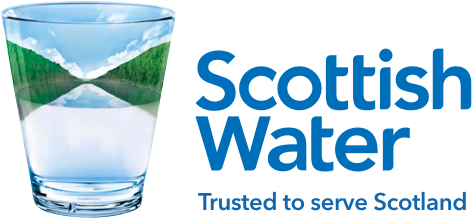Protecting the Environment
Climate change
We depend on a good quality environment in order to serve our customers.
Climate change threatens this environment and we support Government action to reduce greenhouse gas emissions and so minimise the adverse impacts of climate change.
We are a major part of Scotland’s critical national infrastructure. We make a key contribution to serving and supporting Scotland’s communities, protecting public health by providing safe drinking water and preventing environmental pollution by safely treating waste water.
Our goal is to deliver a service that is resilient to climate change whilst achieving a low carbon water industry in Scotland.
We believe this is the right thing for customers, for the economy and for our environment.
Drought
It may rain a lot in Scotland but there are limits to how much fresh water can be stored in lochs and reservoirs.
A lack of rain, or drought, can lead to a water shortage in as little as three weeks. This is why we run water-saving campaigns all year around and not only during a drought.
In early 2010 our water sources were under pressure in parts of Dumfries and Galloway due to a prolonged period of dry weather.
Using water wisely helps preserve our valuable and precious resource.
For tip on using water wisely see: Water Efficiency
Flooding
Over 80% of flooding from sewers is caused by inappropriate items being disposed of in toilets and drains. Proper disposal of waste items will help prevent flooding of other customers’ properties and improve the environment.
Some more useful information can be viewed here:
Pollution
Water pollution is anything that spoils our rivers, lochs, seas and oceans.
Pollution can come from many sources, such as, sewage and waste water.
Sewage is waste water that contains faeces, urine and laundry or dishwater waste.
Sewage disposal is a major problem in developing countries as many people in these areas don’t have access to sanitary conditions and clean water.
Sewage in developed countries is carried away from the home quickly and hygienically through sewage pipes. In richer countries such as ours, sewage is treated in waste water treatment works, where it is made safe.
People sometimes flush chemicals and medicines down the toilet, or things made from substances that do not biodegrade quickly, like plastics.
People also flush:
- Nappies
- Cotton buds
- Cotton wool
- Baby wipes
- Razors
- Paper towels
- Nappy liners
- Plasters
- Cotton wool
- Medicine/tablets
- Sweet wrappers
Some people also illegally throw weedkiller or paint stripper down the drain.
These things can block and break sewage screens at the treatment works and can also end up on the beach and in rivers.
Some of the more unusual items we have found at treatment works include toys and even false teeth!
Please don't flush any of these things down the toilet. Instead put them in a bag or container and then put it in the bin.
To find out about our 'Cycle' campaign which aims to Keep the water cycle running smoothly visit: www.scottishwater.co.uk/cycle
Other types of water pollution include:
- Marine dumping
- Oil pollution
- Atmospheric
- Eutrophication (also known as diffuse pollution)





